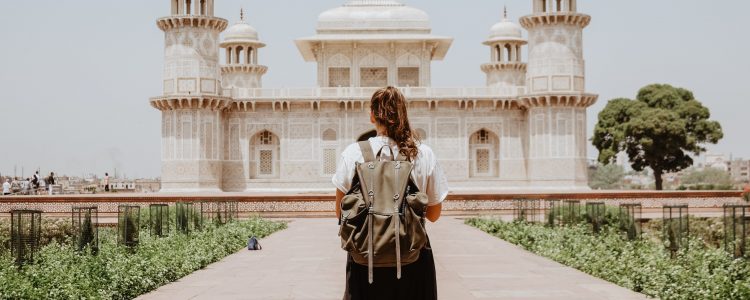The damaging effects of tourism are being felt in many parts of the world, but you can take some steps to minimise the negative impact your trips have on local cultures. Travel should be a mutually beneficial experience that broadens the perspective of the traveller while improving local communities through investment and respectful cultural exchange. Follow our tips on how to be a culturally respectful traveller that isn’t a drain on local life.
Learn & Follow the Local Customs
Research local customs before you or give yourself some time to acclimatise and really take in the local ways of life when you arrive. Observe how to interact with people following the mannerisms they are accustomed to. Some seemingly innocent actions can be offensive in other countries, like eating with your left hand in India or showing the soles of your feet in Thailand.
Invest in Local People
Travel gives you alot of opportunities to put money directly into the pockets of local people. Support independent local craftsmen & vendors and buy local crafts. Avoid the globally ubiquitous coffees shops & fast food spots, use local independent businesses instead – and tip your waiting staff if it’s appropriate. Give money to local charities & community initiatives, it’s a great way to help make a positive impact on local communities that lasts after you’ve returned home.
Get in the Flow of Local Life
In many parts of the world the flow of life can be very different to at home. Searing temperatures could mean locals take a siesta and relax during the height of the midday heat. In some places, tropical weather means things only really get going when the sun goes down. Research the local flow of life or take a few days to get into in when you arrive at a new destination. Go with the flow so you’re not that traveller bothering local people trying to stock up on water or buy a meal.
Get Vaccinated & Stay Healthy
It’s not just your health that you protect by getting vaccinated before you go. As a vaccinated person you are helping stop the spread of disease among local unvaccinated populations, too. Book a consultation at your local Nomad travel clinic for a comprehensive consultation on all the health risks at your destinations and how to stop the spread of disease.
Stay clean and use hand sanitiser so you’re not spreading more germs around, especially if you get sick. Pack an Ultimate Medical Kit or Worldwide Diarrhoea Kit to have a safe supply of antibitotics and medicines to treat travellers diarrhoea. If you can, donate any unused medical kit contents to a local health centre when you head back home, depending on where you are they may really appreciate the extra medicines, first aid & sterile kit.
Follow the Dress Code
It might be that during your whole time spent in a country you will be expected to keep arms & legs covered, or it might only be expected at holy sites. Do your research and find out about the local dress customs before you go in case you need to arrive with modest dress. For most travellers, it’s easiest to pick up some light, modest clothing at your destination. You’ll stand out a little less in local dress, too, and the clothes will be suitable for the local weather.
Learn Some Vocabulary
It really doesn’t take much effort to learn the language basics. There’s loads of apps & online resources to help you learn. In popular backpacking destinations you’ll usually be able to easily find local language teachers that you can do lessons or courses with. It really shows a lot of respect for local cultures if you can communicate even on a basic level & will really help you find your way around.
Photograph Respectfully
Be respectful with who and when you photograph locals. It’s easy to get someone’s permission to take their photograph, even if you can’t speak the same language you can easily gesture to ask permission for a snap. If you’re photographing on the streets, take care not to get in people’s way and interrupt their daily goings on.
There are ever increasing issues around poverty tourism – don’t be a part of the problem by touring slums looking for powerful photographs. Why not do some research and support a local artist whose work highlights issues of poverty? Instead, buy prints or donate to their projects and make a difference to local lives.


No Comments
Be the first to start a conversation